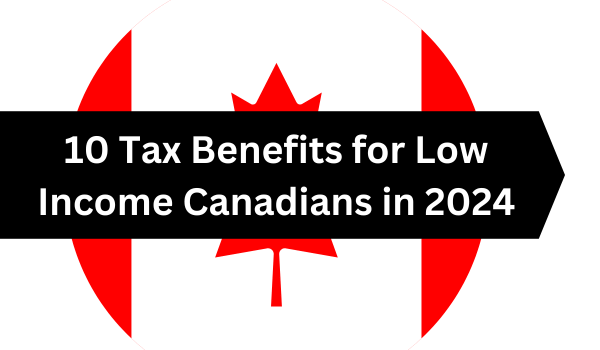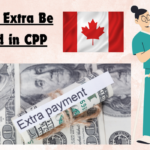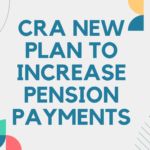Here’s What You Need to Know about the 10 Tax Benefits for Low-Income Canadians in 2024. In Canada, a person is considered to be in low income if their household adjusted after-tax income is less than half of the median adjusted after-tax income is less than half of the median adjusted after-tax income.
10 Tax Benefits for Low-Income Canadians in 2024
Canada also has a modest income definition, which is generally less than $35,000 for a single person and less than $45,000 for a couple. Here are low-income tax credits you can claim to make the most of your low income when tax season rolls around.

1. The Canada Workers Benefit (CWB)
The Canada Workers Benefits was introduced by the federal government in 2019 as a replacement for the Working Income Tax Benefit, which used to provide over $1 billion in tax benefits every year. The CWB can be used to cover your debts, rent, and other day-to-day expenses. If the benefit is not enough to cover all your financial obligations, then you can consider getting a personal loan to consolidate your debts.
There are two components to the CWB
- Max basic amount – $1,428 for single
-$2,461 for families
- Max disability supplement -$737 for single individuals
-$737 for families
Who is Eligible For The CWB:-
- Be a resident of Canada
- Earn a net income that is below the net income level in the region that you live in
- Be at least 19 years old and live with your spouse, common-law partner, or dependent child.
Who Gets The CWB Payments in a Family?
- If both spouses don’t qualify for the disability supplement
- Only you qualify for the disability supplement
- If you and your spouse qualify for the disability supplements
Other Things To Know About The CWB
If your spouse is not eligible and you don’t have children, the CRA will calculate your CWB amount as if you were single.
While both partners may be eligible, only one of you will receive the CWB. Then you can choose who gets the benefit or the CRA will do it.
2. Consider Claiming A Tax Credit In The Future, Instead of Now
Consider claiming a tax credit in the future. Other types of tax credits are better saved for the future if you are currently earning a low income or are at a zero level when it comes to your taxes. Referred to as “carry-forward,” these credits can be used for expenses.
Which Receipts should I keep for Taxes In Canada?
- Medical Expenses
- Home and Office Expenses for Employees
- Vehicle Expenses
- Child Care Expenses
- Education Expenses
- Adoption Expenses
- Charitable Donations
It is better to record these expenses when they have occurred, but only claim them on your taxes in future when you are earning a higher income. These expenses can be kept on record for years and then used when you start earning more, and fall into a higher income tax bracket.
3. The GST/HST Tax Credit
The GST/HST tax credit involves a series of instalments. When you purchase many goods and services in Canada, chances are you`ll have to pay sales tax. For lower-income bracket households, the GST tax credit is a financial benefit provided by the government to help.
The CRA generally pays out the GST/HST tax credit quarterly The GST payments are generally paid out on the 5th day of January, April, July, and October.
Max Annual GST/HST Tax Credit Amounts
The maximum GST tax credit amount you will receive is the following amounts during the period of July 2023 to June 2024:
- $496 for single eligible adults over the age of 19
- $171 for each child under the age of 19
- $650 For those who are married and are in a common-law relationship.
GST/HST Tax Credit Key Points
| Payment Dates | Paid out on the 5th day of January, April, July, And October. |
| Payment Amount | -$496 for single eligible over the age of 19
-$171 for each child under the age of 19 -$650 for married or in a common-law relationship |
| Payments Method | Direct deposit or Cheque by mail |
| Application | Simply file your income taxes every year to be considered for this tax credit. |
4. Let Your Spouse Claim Your Tax Credits
When your spouse or common-law partner is earning a larger income than you, it is a good idea to look into assigning them some of your credits. here are some credits these credits include, but are not limited to:
- Caregiver credit
- Medical Expenses
- Charitable donations
- Public transit
- Tuition
Both partners ( Married and common-law partners) can file for these types of credits in Canada. It is very beneficial for the partners with the highest income to claim them.
5. Always File A Return, And Claim Everything Possible
When you file your income taxes, you will be automatically evaluated by the CRA to determine whether or not you will be eligible for certain tax credits like GST/HST tax credit, the Canada Child Benefit, or any other kind of federal. Even if you are earning little to no income, the best thing you can do during tax season is to always file a tax return.
- Tax Considerations For Parents
- Tax Considerations For Seniors
Canada Child Benefit
The CCB is a monthly, tax-free payment from the Canadian government to help families with the cost of raising children under 18 years old.
- The CCB can include the child Disability Benefit
- The maximum annual benefits is up to $7,437 per child
- The CCB is administered by the Canada Revenue Agency
6. Make Use Of RRSPs And TFSAs
RRSP- Registered Retirement Savings Plan
TFSA- Tax-Free Saving Account
A great strategy to consider when it comes to reducing your taxable amount is to make use of tax-deferred accounts like RRSPs, TFSAs, FHSAs
- Registered Retirement Saving Plan:- You can contribute up to 18% of your earned income in the earlier year up to the annual limit. Contributions made to your RRSP account will lower your taxable income and therefore reduce the amount of taxes that you need to pay.
- Tax-Free Savings Account:-The contributions to the TFSA are made to be used after-tax money, You would not be taxed on this money when you withdraw money from the account. The annual contribution limit for TFSAs in 2025 will be $7,000.
- First Home Saving Account:- The annual contribution limit is $8,000, with a lifetime maximum of $40,000.And like an RRSP, contribution to FHSA will lower your taxable income. If invested these contributions can grow tax-free whether from capital gain interest.
Remember that these accounts might make less sense in certain income situations. If you earn low income then contributing to an RRSP to reduce your taxable income might not have much of an impact. Those who earn high income benefit more from RRSP Contributions in terms of tax benefits.
7. Refundable Provincial Credits
Federal tax credits are available there are also some provincial tax credits available that are worth considering, depending on where you live.
- Ontario Trillium Benefit:- It provides a monthly tax-free payment to eligible residents of Ontario. It helps low to middle-income households cover the cost of energy bills.
- Quebec Solidarity Tax Credit:- It provides a credit of up to $800 or more. There are 3 components to the credit, 1 for Housing 2 for Quebec sales tax and 3 For individuals living in northern villages.
8. Claim The Basic Personal Amount
This credit can help you reduce the taxes It is non Non-refundable tax credit provided by both the federal and provincial governments that you can claim on your income tax return.
The federal amount of the credit is currently $15,000. In Ontario, the basic personal amount is currently $12,399 and in Quebec, it is $18,056.
9. Take Advantage Of Pension Income Splitting
If you are in retirement age and received qualifying pension income during the tax year you may be eligible for pension splitting. The idea is for the partner in the higher income bracket. By doing so, you can reduce the overall amount of taxes that both you and your partner.
10. Find A Tax Credit Applicable To Your Life Situation
Maybe you are a student, a senior or a person with a disability. If you fall under a specific category and you are struggling with a low income, you may qualify for any number of tax credits.
Here are some credits
- Medical Expense Tax Credit – Receive up to $2,635
- Home Accessibility Tax Credit – Receive up to $3,000
- Disability Tax Credit – Receive up to $9,428
- First Time Home Buyers Tax Credit – Receive up to $1,500.
Conclusion
In other world, the amount of money you make influences the types of benefits and credits you are eligible for. If you are below certain income level than you may qualify for some of these credits and benefits.


